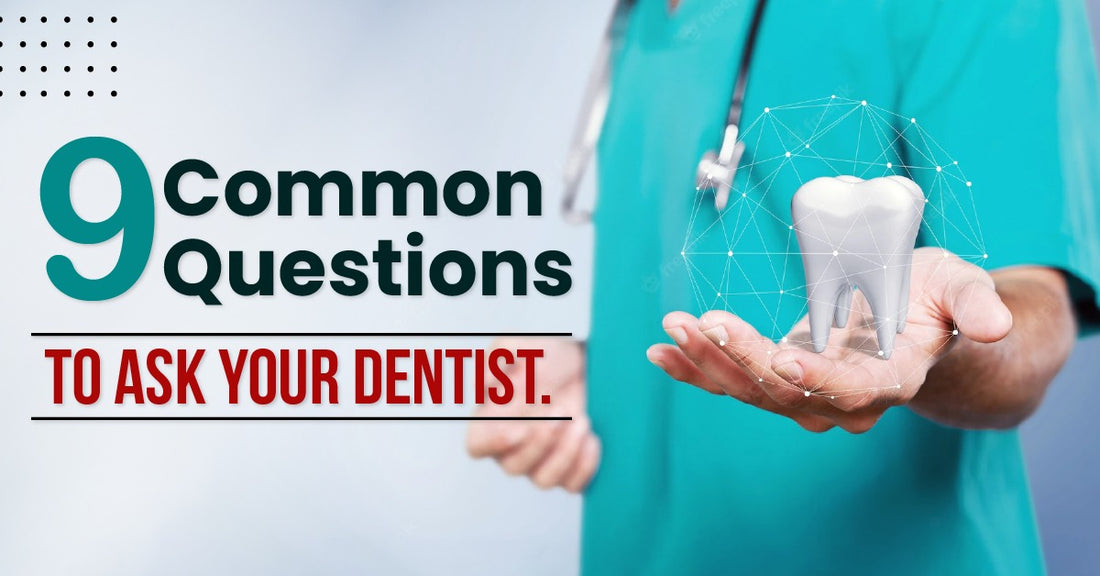From an early age, parents, teachers, and even coaches encourage their children to ask questions. At the dentist’s clinic, the same curiosity should be encouraged. Interesting questions to ask a dentist are an essential part of your long-term healthcare.
It’s essential to have faith in your dentist. If you suffer from dental anxiety, developing a positive relationship with your dentist will help to alleviate any worries or jitters you may have while in the chair. You should trust that your dentist is looking out for your best interests and that they will take the time to focus on your comfort and well-being. And one method to ensure that is to ask your dentist about any problems you may have.
You may not know it, but your dentist would appreciate it if you asked more questions about oral care, whether they are related to a specific treatment or just general dentistry questions and answers. Asking questions and being open with your dentist will help you not only relax but also spot possible problems before they become serious.
Here are 9 Interesting questions to ask a dentist by everyone to make sure they get the best care:-
-
How Often Should I Visit the Dentist?
Even if your mouth is in great condition, a typical rule for adult patients is to visit a dentist once or twice a year. You can maintain excellent oral health and prevent bad breath by having your teeth professionally cleaned on a regular basis.
-
What Are the Most Effective Ways to Maintain Oral Hygiene at Home?
Take your oral hygiene to the next level by following a few simple measures to better dental health, in addition to brushing and flossing every day. These are some of them:
- Using ayurvedic products, like Vithoba Ayurvedic Dantmanjan.
- Sugary snacks should be avoided.
- Eating a balanced diet of fruits and vegetables.
- Tobacco in any form should be avoided.
-
What Can I Do to Make My Teeth Whiter?
A beautiful smile with clean, white teeth boosts one’s confidence significantly. Most people’s teeth darken over time, either as a result of surface stains or interior stains. Treat coffee, wine, tobacco, and colored food stains at home or use teeth whitening toothpaste or have professional whitening done regularly. Consider composite bonding or veneer placement on the damaged teeth for a more permanent remedy to internal discoloration.
-
What Can I Do to Avoid Tooth Decay, Gingivitis, and Other Issues?
The best method to keep your mouth healthy is to eat a balanced diet, visit the dentist on a regular basis, and keep up with your oral hygiene practice of twice-daily brushing and once-daily flossing. By asking your dentist these questions, you can protect yourself from problems that can develop quickly.
-
What Are the Benefits of Dental X-Rays?
Early in the doctor-patient relationship, your dentist should take a comprehensive series of dental X-rays. X-rays allow your dentist to keep track of any changes in your teeth in between appointments. Every year, most adult patients receive bitewing X-rays, and every four to five years, they have a full mouth series. Those at a higher risk of dental cavities may require them every 6 to 18 months.
-
- What Is the Meaning of This Pain, Sensation, or Discoloration?
Bring up any issues or concerns you may have about your dental health. For example, if you have tooth sensitivity, are concerned about the color or appearance of a tooth, or are experiencing dental pain. Make the mistake of ignoring warning signs. Share dental issues with your dentist so that you can create a treatment plan.See this guide, 5 Steps To Deal With Tooth Sensitivity To Cold Foods.
-
When Should I Consider Dental Implants?
Dental implants are a great way to replace teeth that have been lost or damaged. Implants are a permanent alternative for people who don’t want to wear dentures and have a healthy mouth and jaw. Dental implants are an excellent choice for most adult patients because they can help prevent the existing teeth from moving or loosening.
-
- Do I Need to Use Mouthwash?
Although mouthwash should not be used in place of brushing and flossing, it can be beneficial to your dental health. Using mouthwash helps to keep your breath fresh, bacteria under control, and your teeth strong. However, it is essential that you use the correct type of mouthwash and that you use it as directed. Consult your dentist to determine whether mouthwash is appropriate for you and, if so, which type to use. Your dentist can explain how to get the most out of your mouthwash and provide you with usage instructions. Your dentist can also advise you on potential side effects to be aware of. Such as mouth sores, root sensitivity, or numbness.
-
When Should My Child See a Dentist for the First Time?
According to studies, children can acquire their first cavities as early as two years old, thus Dentist suggests scheduling the first appointment as soon as their first tooth shows or by their first birthday at the latest. As your child’s teeth grow in, this helps your dentist spot possible problems that could damage your child’s overall health and well-being.
Your dental treatments and routine checkups will be a relaxing and enjoyable experience if you choose the right dentist. More importantly, these visits will provide you with an excellent chance to take charge of your dental health and prepare yourself for a lifetime of healthy teeth and gums. Your entire dental team, including dental assistants, hygienists, and your dentist, can provide valuable advice. So, make the most of your time in the dentist’s chair by asking lots of questions.
Don’t be scared to ask Interesting questions to a dentist the next time you visit; they are there to help you! With these questions prepared, you’ll never be in doubt about the condition of your oral health.

